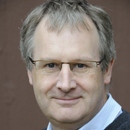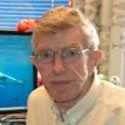Academic Editors
The following people constitute the Editorial Board of Academic Editors for PeerJ. These active academics are the Editors who seek peer reviewers, evaluate their responses, and make editorial decisions on each submission to the journal. Learn more about becoming an Editor.

George M. Coupland
Director of the Max Planck Institute for Plant Breeding Research, Cologne, Germany. Recipient of several honours, the most recent being election to the National Academy, USA in 2012.

Subrata Deb
Dr. Subrata Deb is Chair & Associate Professor in the Department of Pharmaceutical Sciences at Larkin University, United States. Previous to this, he held positions at the Roosevelt University, The University of British Columbia and Tripura University.
Dr. Deb received his Bachelor of Pharmacy degree from the Berhampur University and his Master of Pharmaceutical Sciences from the University of Mumbai. He received his Ph.D. in Pharmaceutical Sciences from The University of British Columbia and subsequently completed his postdoctoral fellowship from the Vancouver Prostate Centre, a National Centre of Excellence.
Dr. Deb’s primary research interests include Pharmacology, Toxicology, Pharmacogenomics, and Pharmacokinetics with special emphasis on Drug Metabolism and Drug Interactions.

Lennart Seizer
Dr. Lennart Seizer is a a biologist, psychologist, neuro immunologist, and post-doctoral research fellow at the University of Tübingen, Germany.
Dr. Seizer's areas of expertise include psycho neuroimmunology, time-series analysis, and ambulatory assessment.

Kathryn A Gold
Associate Professor, Thoracic/Head and Neck Medical Oncology, Moores Cancer Center, University of California San Diego

Franco Milko Impellizzeri
Prof. Franco Impellizzeri is a professor within the School of Sport, Exercise and Rehabilitation at the University of Technology Sydney. He specializes in sport and exercise science and medicine, with extensive experience in applied sport science as both a researcher and practitioner, as well as in orthopedics, focusing on clinical outcome studies and clinimetrics.
Prof. Impellizzeri's research interests span research methodology and diverse areas of exercise science, including training and testing for both high-performance and health-focused outcomes. He has worked with elite Olympic athletes across various disciplines, encompassing both winter and summer sports, and has collaborated with international sports organizations.

Zoltán Tóth
My current research focuses on investigating whether or not the utilization of social information is taxonomically widespread, beneficial in different ecological conditions, and independent of permanent group-living similarly to the exploitation of other biotic or abiotic cues in the environment. I use several model systems to test related predictions in the contexts of foraging and predator avoidance, and build individual-based models to investigate how social information-mediated behavioural adjustments may affect population dynamics and species interactions.

Jeroen AA Demmers
Team leader Proteomics Center & Assistant Professor Erasmus University Medical Center Rotterdam
Education:
EUR Fellow, Erasmus University Medical Center
Postdoc, The Rockefeller University (Chait lab)
PhD, Utrecht University (Heck & Killian labs)
MSc (hons) Chemistry, Utrecht University

Priya Ramesh Prabhu
Priya Ramesh Prabhu is a Postdoctoral research fellow in the Human Biology Division at Fred Hutchinson Cancer Center, Seattle, WA. She is an immunologist with focus on Human papillomavirus (HPV) vaccination. Her expertise is in evaluation of vaccine-induced immune responses. She completed her PhD from Rajiv Gandhi Center for Biotechnology, Kerala, India, working in a Phase IV clinical trial comparing the efficacy of 2 vs 3 doses of quadrivalent HPV vaccine among Indian girls.
Nicola Traverso
Dr. Nicola Traverso is an Associate Professor within the Department of Experimental Medicine at the University of Genova.

Malcolm Jobling
Professor of Fish Biology and Aquaculture. Authored and edited books on fish biology, physiology and nutrition, and aquaculture, and serving editorial board member for fisheries and aquaculture journals. Formerly, member of EUCost, ICES and academic society steering committees.

Houtan Noushmehr
Associate scientist and professor of epigenomics and bioinformatics at the department of neurosurgery and genetics.

Géraldine Escriva-Boulley
Dr. Géraldine Escriva-Boulley is an associate professor at Haute-Alsace University in France.
Her specific areas of research include Social Psychology and Positive Psychology.

